Friday Bible Blogging - Psalms 21 to Psalms 30
This entry is part of a series. For a listing of all entries in the series, go to the Index. Unless otherwise noted, all Bible quotations are from the New Revised Standard Version (NRSV). All headings are links to those Bible chapters.
 Psalms 21 through 30 are largely similar to the preceding twenty psalms. However, there are a few standouts in this chapter that will be familiar to most readers, such as Psalm 22 which contains the last words of Jesus according to Matthew, or Psalm 23 which begins with the famous line, "The Lord is my shepherd, I shall not want."
Psalms 21 through 30 are largely similar to the preceding twenty psalms. However, there are a few standouts in this chapter that will be familiar to most readers, such as Psalm 22 which contains the last words of Jesus according to Matthew, or Psalm 23 which begins with the famous line, "The Lord is my shepherd, I shall not want."
This psalm is supposed to be a "Thanksgiving for Victory", contains the type of praise typical of Psalms. According to the New Oxford Annotated Bible (NOAB), it's a continuation of Psalm 20. One part struck me as a bit extreme, though not out of character for the Bible. Concerning David's enemies, the psalm had this to say.
The Lord will swallow them up in his wrath,
and fire will consume them.
You will destroy their offspring from the earth,
and their children from among humankind.
It's just one more example of guilt being passed on to people that had nothing to do with the original crime/sin.
Psalm 22 is titled, "Plea for Deliverance from Suffering and Hostility". It begins with a verse that will be familiar to almost all Christians.
My God, my God, why have you forsaken me?
Why are you so far from helping me, from the words of my groaning?
I know Christians believe that Jesus was probably intentionally quoting David, but it certainly makes you wonder if some writer thought that this psalm seemed fitting for Jesus and added it to the story.
This psalm reminds me a bit of Job, in the anguish and helplessness the writer expresses, though it doesn't take on quite the same accusatory tone as Job. It's one of the more moving psalms that I've read so far.
This psalmist attempted a tactic almost akin to bribery in trying to seek help from the Lord, promising to praise God if God would just help him.
I will tell of your name to my brothers and sisters;
in the midst of the congregation I will praise you:
If you'll recall from the previous two weeks' entries, there seems to be a theme of representing Sheol as "a drab & dismal underworld", but this psalm presents a slightly different view.
To him, indeed, shall all who sleep in the earth bow down;
before him shall bow all who go down to the dust,
and I shall live for him.*
Psalm 23, "The Divine Shepherd", is one of the most famous psalms, and for good reason. It's a combination of praise and thanksgiving, but using metaphors that make it much more appealing than the typical praise and thanksgiving psalms. For example, here are the opening verses.
1 The Lord is my shepherd, I shall not want.
He makes me lie down in green pastures;
he leads me beside still waters;
he restores my soul.
He leads me in right paths
for his name's sake.
Verse 4 isn't quite as poetic in the NRSV translation as in some other translations, however. Consider the NRSV version.
Even though I walk through the darkest valley,
I fear no evil;
And now compare it to the King James Version.
Yea, though I walk through the valley of the shadow of death, I will fear no evil...
Psalm 24, "Entrance into the Temple", is mostly praise of God, with a little bit about "Who shall ascend the hill of the Lord". The NOAB had an interesting note about the first couple verses. First, here are the verses.
The earth is the Lord's and all that is in it,
the world, and those who live in it;
for he has founded it on the seas,
and established it on the rivers.
The NOAB noted that, "Presupposed is the combat myth in which the storm god defeats chaotic Sea, creates the universe, and erects a palace (temple) to commemorate the victory. Israel likely borrowed and transformed this myth from its Canaanite predecessors." I'd mentioned previously that cosmological portions of these poetic books might be able to be chalked up to poetic license, but there's so much of it, and portions of it are consistent. This battle with a sea monster is very reminiscent of the battle with Leviathan from Job.
Psalm 25 is a "Prayer for Guidance and for Deliverance". As pointed out in the NOAB, it can be divided into three portions - petition, lesson, petition. Overall, it's language and themes are similar to other psalms.
Chapter 26 is a "Plea for Justice and Declaration of Righteousness". Like I just wrote above, it's language and themes are similar to other psalms. The NOAB pointed out an interesting observation. The first verses discuss walking, "Vindicate me, O Lord, / for I have walked in my integrity," as does the penultimate verse, "But as for me, I walk in my integrity; / redeem me, and be gracious to me." This may be an indication that the psalm was used in some type of ritual procession.
Psalm 27 is a "Triumphant Song of Confidence". It's more of the same, but verses 8 and 9 are noteworthy.
'Come,' my heart says, 'seek his face!'
Your face, Lord, do I seek.
Do not hide your face from me.
Per the NOAB, this is another indication of the possibility of a statue of Yahweh in the temple, like I mentioned last week for Psalm 17. Personally, I'm still not convinced of that interpretation.
This psalm is a "Prayer for Help and Thanksgiving for It", and is much like the other psalms of that ilk. Above when discussing chapter 22, I'd mentioned that that chapter seemed to present the after life a little differently than other portions of Psalms. This chapter is more consistent with those other portions.
for if you are silent to me,
I shall be like those who go down to the Pit.
After presenting his request, the psalmist wrote, "Blessed be the Lord, / for he has heard the sound of my pleadings." The NOAB notes that this may be that "the Lord has spoken, perhaps through an oracle..." But as with some of the other interpretations that the NOAB has presented for Psalms, this one seems to be highly conjectural.
Psalm 29 is "The Voice of God in a Great Storm", and describes a very powerful storm. If you've been reading these entries at all, you'll recognize that theme - many sections of the Bible present God as a storm God, hinting at his Canaanite origins. In fact, the NOAB says that, "many scholars think that this was a Canaanite psalm adapted by early Israel." There was also a hint of polytheism in the first verse, "Ascribe to the Lord, O heavenly beings".
Verse 10 repeated a them I just discussed for chapter 24, "The Lord sits enthroned over the flood..." This is another allusion to defeating the sea in a primordial battle. And of course, the NOAB has something to say about this, as well, "ancient myths sometimes depicted the storm god defeating hostile Sea and building his palace upon its body."
There was one interesting aspect of this chapter that almost certainly wouldn't have caught on my own, but learned of through the NOAB. The phrase, "The voice of the Lord" appears seven times in this psalm. Considering the importance of the number 7 to those ancient writers, I don't think this is a coincidence.
Psalm 30 is a "Thanksgiving for Recovery from Grave Illness". The praise and thanksgiving are typical, but there are a few parts that stand out. First is the subscript, "A Psalm. A Song at the dedication of the temple. Of David." According to the NOAB, that part about the 'dedication of the temple' is an add on from the time Judas Maccabeus around 164 BC.
I've discussed the concept of the afterlife a couple times above. Here's another verse that's consistent with Sheol being rather drab, which seems to be the dominant view throughout Psalms.
'What profit is there in my death,
if I go down to the Pit?
Will the dust praise you?
Will it tell of your faithfulness?
Just like in the previous chapter, an interesting fact appears when you count the number of times 'Lord' and 'God' appear in this psalm - twelve times, supposedly representing the twelve tribes of Israel.
---
Like I've written the past two weeks, Psalms quickly becomes repetitious, with similar themes and concepts being repeated throughout. However, in the chapters I read this week, there were a couple very good psalms - Psalm 22 for the anguish and depth of emotion, and Psalm 23 for being praise that's more than just platitudes. I wish more of the Psalms were of that quality.
New Revised Standard Version Bible, copyright 1989, Division of Christian Education of the National Council of the Churches of Christ in the United States of America. Used by permission. All rights reserved.

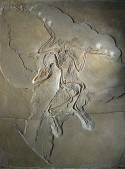 The other day browsing through the channel guide, I wandered into the religious channels and saw a show on creationism. I recorded it and just watched it this past weekend.* It was part of the Creation Series by Kent Hovind. Now, if you follow the creationism/evolution 'debate' at all, you'll probably recognize that name. Hovind is rather infamous, not just for the poor quality of his arguments, but also for his questionable ethics, such as getting his bachelor's degree from a non-accredited university, his doctorate from a diploma mill, and then his tax evasion that landed him a 10 year prison sentence (he should be released in 2015). But despite his infamy, I have to admit to never having watched any of Hovind's videos before. So I figured, why not give it a shot and see how bad it could be.
The other day browsing through the channel guide, I wandered into the religious channels and saw a show on creationism. I recorded it and just watched it this past weekend.* It was part of the Creation Series by Kent Hovind. Now, if you follow the creationism/evolution 'debate' at all, you'll probably recognize that name. Hovind is rather infamous, not just for the poor quality of his arguments, but also for his questionable ethics, such as getting his bachelor's degree from a non-accredited university, his doctorate from a diploma mill, and then his tax evasion that landed him a 10 year prison sentence (he should be released in 2015). But despite his infamy, I have to admit to never having watched any of Hovind's videos before. So I figured, why not give it a shot and see how bad it could be.
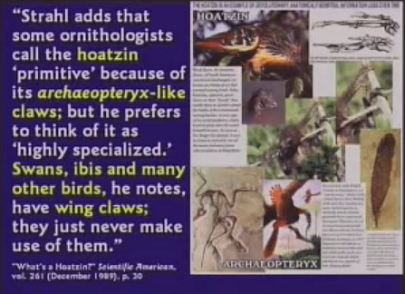

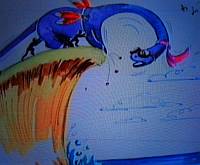




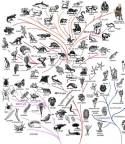 There's a recent article at the Daily Beast,
There's a recent article at the Daily Beast,  I recently had a conversation with an acquaintance regarding climate change. He was a denialist, and one of his arguments, while a familiar tactic, was a new one to me on the specifics - that 2013 had seen a dramatic increase in Arctic sea ice extent, indicating that the global warming trend had reversed. After doing a bit of Googling, I found similar claims in some of the standard denialist sources. For example, a recent article in The Telegraph by Hayley Dixon carried the headline,
I recently had a conversation with an acquaintance regarding climate change. He was a denialist, and one of his arguments, while a familiar tactic, was a new one to me on the specifics - that 2013 had seen a dramatic increase in Arctic sea ice extent, indicating that the global warming trend had reversed. After doing a bit of Googling, I found similar claims in some of the standard denialist sources. For example, a recent article in The Telegraph by Hayley Dixon carried the headline, 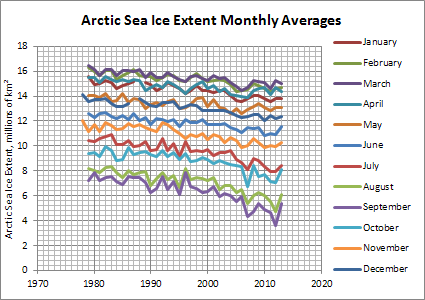
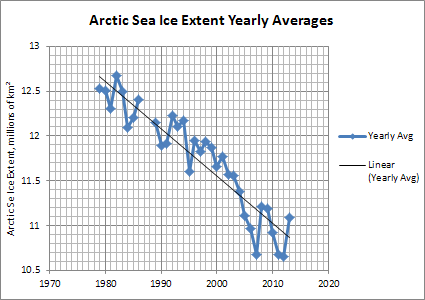

 Another month has come and gone, so it's time to look over the server logs again. This time, however, I noticed that I completely missed this top 10 list in November, so today's entry gives you two months for the price of one.
Another month has come and gone, so it's time to look over the server logs again. This time, however, I noticed that I completely missed this top 10 list in November, so today's entry gives you two months for the price of one.